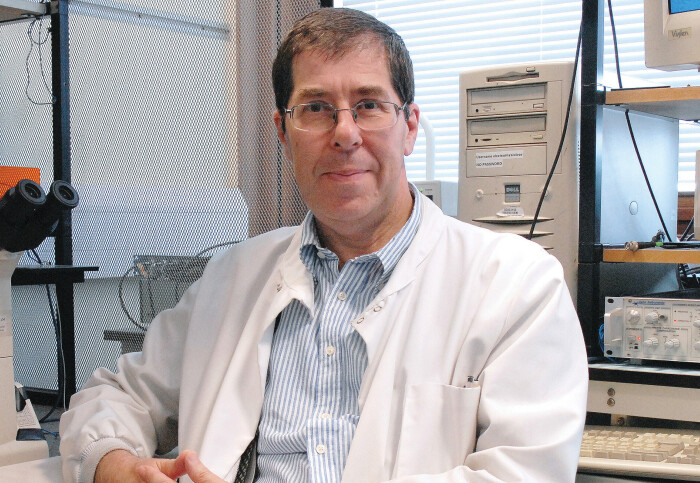Anaesthetics expert elected to US National Academy of Medicine

Professor Nick Franks has been elected as an International Member of the US National Academy of Medicine.
Professor Franks, Professor of Biophysics and Anaesthetics in the Department of Life Sciences, has been named among 10 new international members of the National Academy of Medicine, alongside the election of 90 regular members.
The National Academy of Medicine has recognised Professor Franks for "revolutionary discoveries that have shaped our understanding of how anaesthetics work. He overturned the long-held assumption that anaesthetics interact nonspecifically with cell membranes, demonstrating that they act at specific binding sites on a small number of receptors."
Professor Franks said: “I am delighted, and honoured, to be elected to the US National Academy of Medicine. Whatever I have achieved has only been possible though collaboration with many outstanding scientists, and I'm thrilled that our work has been recognised by my colleagues in the US.”
The mysteries of sleep
Professor Franks is an expert in anaesthetics and how they work. He has worked on this problem at the molecular and cellular levels, and more recently at the level of neuronal networks, where he has been pursuing the possibility that the sedative and hypnotic actions of general anaesthetics may be mediated through the same neuronal pathways that control natural sleep.
In 2012, he merged his lab at Imperial with that of Professor Bill Wisden, to work together on mechanisms of sleep and anaesthesia. They are affiliated with the UK Dementia Research Institute and the Centre for Neurotechnology at Imperial.
The group are interested in the actions of anaesthetic and sedative drugs, some of which appear to act by hijacking the natural sleep circuits that drive us to sleep when we are sleep deprived.
They use molecular genetics and behavioural analysis in mice to unravel these mechanisms, finding, in recent years, that sleep may not clear brain toxins as commonly thought, that getting ready for bed is controlled by specific brain wiring in mice, and that sleep triggered by stress can help mice cope with later anxiety.
International recognition
Founded in 1970 The National Academy of Medicine (NAM) is one of three academies that make up the National Academies of Sciences, Engineering, and Medicine (the National Academies) in the United States. It has a mission of improving health for all by advancing science, accelerating health equity and providing independent, authoritative, and trusted advice nationally and globally.
Members of the National Academy of Medicine are selected by existing members in recognition of their achievement and contributions to the fields of the medical sciences, healthcare and public health, with only 10 awarded each year to those outside the United States.
Professor Richard Craster, Dean of the Faculty of Natural Sciences at Imperial, said: “The Faculty of Natural Sciences is immensely proud of Nick Franks' election to the US National Academy of Medicine; this is a most prestigious international recognition of Nick’s extraordinary contribution to our understanding of anaesthetics and their impact upon consciousness and sleep.
"It is tribute to his many years of groundbreaking fundamental science and discovery: I am delighted to hear of his election.”
Article text (excluding photos or graphics) © Imperial College London.
Photos and graphics subject to third party copyright used with permission or © Imperial College London.
Reporter
Hayley Dunning
Communications Division